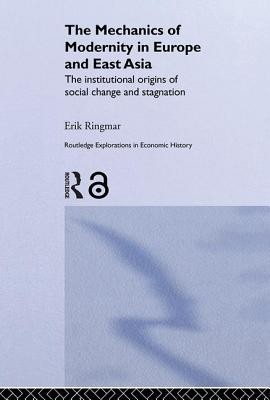
- We will send in 10–14 business days.
- Author: Erik Ringmar
- Publisher: Routledge
- ISBN-10: 0415342546
- ISBN-13: 9780415342544
- Format: 15.9 x 24 x 2 cm, kieti viršeliai
- Language: English
- SAVE -10% with code: EXTRA
Reviews
Description
Why, from the eighteenth century onwards, did some countries embark on a path of sustained economic growth, while others stagnated? This text looks at the kind of institutions that are required in order for change to take place, and Ringmar concludes that for sustained development to be possible, change must be institutionalized. Taking a global view, Ringmar investigates the implications of his conclusion on issues facing the developing world today.
EXTRA 10 % discount with code: EXTRA
The promotion ends in 22d.16:19:47
The discount code is valid when purchasing from 10 €. Discounts do not stack.
- Author: Erik Ringmar
- Publisher: Routledge
- ISBN-10: 0415342546
- ISBN-13: 9780415342544
- Format: 15.9 x 24 x 2 cm, kieti viršeliai
- Language: English English
Why, from the eighteenth century onwards, did some countries embark on a path of sustained economic growth, while others stagnated? This text looks at the kind of institutions that are required in order for change to take place, and Ringmar concludes that for sustained development to be possible, change must be institutionalized. Taking a global view, Ringmar investigates the implications of his conclusion on issues facing the developing world today.


Reviews